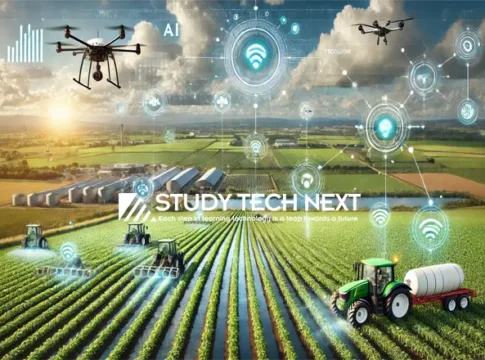AI and the latest technology are making significant impacts on agriculture, enhancing efficiency, sustainability, and productivity. Here are some of the key areas where advancements are transforming the agricultural landscape:
Precision Farming: AI-driven technology is elevating precision agriculture by utilizing advanced sensors, drones, and satellite imaging. These tools provide farmers with detailed insights on soil health, crop conditions, and resource requirements, allowing for more efficient management of water, fertilizers, and pesticides. This not only boosts yields but also reduces environmental impact by optimizing resource use.
Autonomous Machinery: AI is increasingly being integrated into farming equipment. Autonomous systems like self-driving tractors and robotic harvesters are reducing labor costs while enhancing precision in planting and harvesting. Such technologies enable farmers to automate routine tasks, improving both efficiency and productivity.
Generative AI and Digital Twins: Generative AI is playing a growing role in agriculture by providing predictive analytics and insights from big data. A significant trend for 2024 is the use of digital twins—virtual models of physical farms—to simulate and optimize farming practices. These tools can help minimize costly field trials and accelerate the development of new agricultural products and methods.
Climate-Smart Solutions: AI helps farmers adapt to climate change by leveraging real-time weather data and soil conditions for better irrigation and crop management. Climate-resilient crop development and smart irrigation systems are part of this trend, aiming to mitigate the effects of climate variability on farming.
Data Integration and Cloud Solutions: Cloud-based platforms are enabling real-time access to vast amounts of farm data, facilitating collaboration among farmers, agronomists, and researchers. The anticipated increase in data collection from IoT devices is set to drive further innovations, particularly in analyzing crop health and predicting yields.
Overall, AI and technology are fostering a shift towards more data-driven, sustainable, and resilient agricultural practices, addressing challenges like food security and climate change while improving productivity across the sector.

